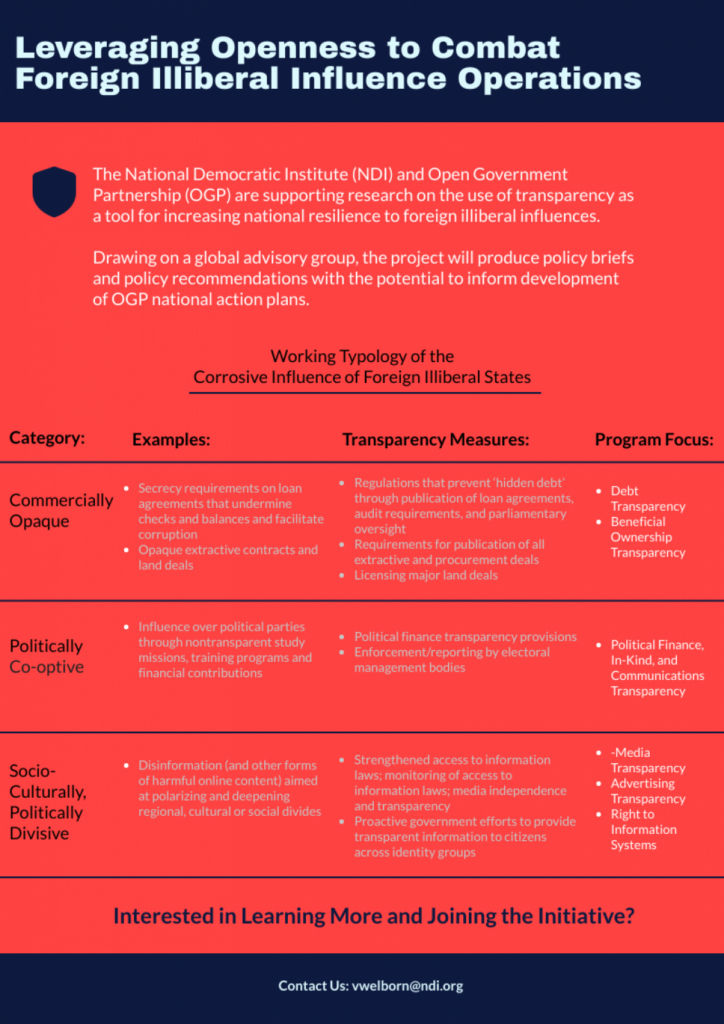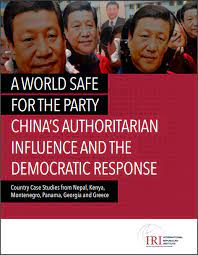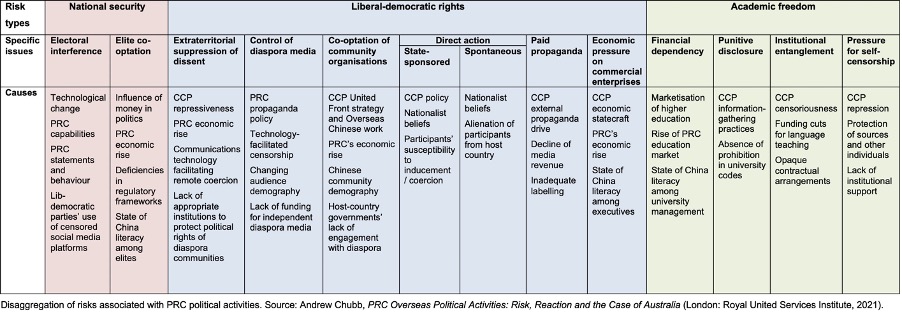
U.S. officials detected considerable interference by autocratic powers China, Russia and Iran during the 2020 electoral cycle, Newsweek reports:
During the George Floyd demonstrations in June, DHS reported that Russia, China and Iran were using the U.S. protests for their own propaganda, “selectively amplifying content surrounding riots and portraying the country as divided, hypocritical, and racist.” The intelligence communities’ Election Threat Update in August highlighted cyber-attacks from China, Russia, and Iran. FBI Director Christopher Wray said a variety of foreign adversaries were looking to “amplify controversy in this country” using state and social media to convey disinformation and fake information.
Russian media outlets reported spending more than $146 million on foreign influence operations and propaganda in the U.S. since 2016, with over $16 million on propaganda targeting the U.S. in 2021, according to an OpenSecrets’ analysis of new Foreign Agents Registration Act records.
Examples of transnational illiberal actors manipulating the information environment, weakening democratic norms, and undermining inclusive and sustainable economies are well-documented, writes Victoria Welborn, a Senior Program Manager at the National Democratic Institute (NDI). Global research conducted by NDI, a core partner of the National Endowment for Democracy (NED), has shown that the impact of illiberal influences can be offset by resilient democratic institutions, she observes:
Taiwan’s government, for example, has utilized “radical transparency”1– through open technology, public policy, and the media – to build a trust relationship. When disinformation enters the information environment, government and media are seen as authorities to dismiss false information that aims to erode government legitimacy. Multistakeholder participation — including private sector, civil society, legislatures and governments — in the development and enforcement of transparency policies is also crucial to create and enforce policies that address these threats to democracy.
 A report from NDI’s ‘sister’ International Republican Institute (IRI), A World Safe for the Party: China’s Authoritarian Influence and the Democratic Response, analyzes influence tactics the Chinese Communist Party (CCP) has leveraged to protect its global interests and export its authoritarian model.
A report from NDI’s ‘sister’ International Republican Institute (IRI), A World Safe for the Party: China’s Authoritarian Influence and the Democratic Response, analyzes influence tactics the Chinese Communist Party (CCP) has leveraged to protect its global interests and export its authoritarian model.
Many prominent commentators and officials argue that clarity and effective policy responses [to influence ops] depend on approaching the full array of issues — from electoral interference to extraterritorial suppression of dissent, inducement of self-censorship, and the presence of Confucius Institutes on university campuses — through a national security lens, notes Andrew Chubb, a British Academy Postdoctoral Fellow at Lancaster University, In a new policy report released this month by the Royal United Services Institute in London, he argues that effective liberal-democratic policy responses depend on doing the opposite. Instead, it is crucial to carefully disaggregate the different kinds of risks posed by the People’s Republic of China’s (PRC) overseas political activities (see table below):
If the PRC’s malign intent is taken as the cause of problems that are in fact rooted in more general systemic shortcomings, such as the influence of money in politics, barriers to access to law enforcement for diaspora communities, or obstacles to full political participation by all social groups, then such vulnerabilities are likely to remain unaddressed in policy. Disaggregating these issues is a necessary first step towards comprehensive, methodical policy responses.

A multinational task force to thwart China’s information and influence operations [what NED’s Forum calls Beijing’s ‘sharp power’] in the Indo-Pacific region could bring in democracies such as Japan and Australia to create and deploy technologies at the coalition’s disposal, argues analyst Holmes Liao. The task force could also deploy artificial intelligence to generate variants of narratives and analyze the users’ social networks to disseminate them to a greater number of Chinese. There are at least four benefits to this strategy:
- First, it can deter China from engaging in ever-more aggressive disinformation campaigns.
- Second, the outside content can “de-brainwash” and help transform the mindset of Chinese to one that is more amicable to the West.
- Third, the Great Firewall would crumble because of the damaging information to the communist regime, and because the CCP’s invincible and impenetrable image would be shattered.
- Last but not least, when Chinese who appreciate the truth reach critical mass, the strategy would jeopardize the CCP regime’s survival and might even liberate Chinese from its oppressive rule.
Recognizing the threat that transnational illiberal operations pose to democracies around the world, NDI and the Open Government Partnership (OGP) have partnered to leverage transparency as a means to build democratic resilience, Welborn adds. RTWT







